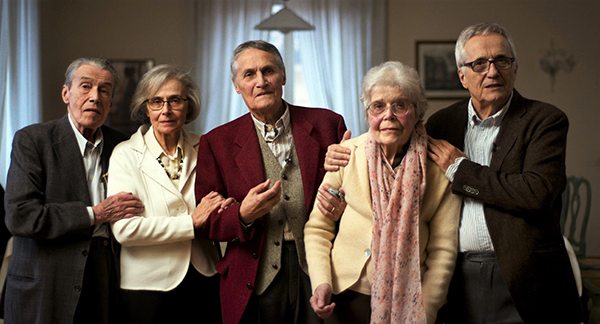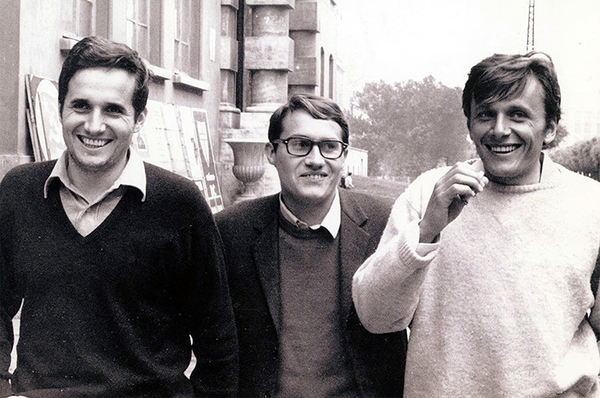Famiglia
Marco Bellocchio, confidential
PostED ON OCTOBER 14
In Marx Can Wait, the Italian director explores a family tragedy that has haunted his work, the suicide of his twin brother at age 29.
What was the starting point for Marx Can Wait?
A family reunion during which I suddenly realised that an essential character was missing from this mosaic, Camillo, my deceased twin brother. I then decided to interview some of my relatives and share with them memories of the tragedy with the goal of making a film.
How did the structure of the film come about?
When I started to probe this family tragedy, I realised that I could combine my experience as a filmmaker with their testimonies. So I had the idea of inserting fragments of my films that are indirectly linked to what happened. Because even if it is hidden behind the identity of some of my characters, Camillo appears in many of my films. These scenes were precious because they allowed me to create the substance of Marx Can Wait.
 Marx Can Wait, 2021
Marx Can Wait, 2021
Why did you consider it essential to do this at this time in your life?
I felt that the time had come to share this story with new generations of my family. I do not believe in eternity or the afterlife, and if I didn't make this film now, I might not make it at all. It was not so much to settle a debt with my brother Camillo, but more to satisfy a need to bear witness, to tell and interpret this personal tragedy that has affected me all my life.
How did you work with your relatives?
Very freely. The structure of the film evolved throughout the process of interviewing them. The first scene, the family reunion around my father, dates back five years ago. Since then, some of the main witnesses in the film have died. When I showed my relatives the first version of Marx Can Wait, I felt that they were very touched. There was no judgment, just a powerful collective emotion.
Why was it important for you to appear on screen?
I was certain that in order to evoke this tragedy in all its depth, it was necessary for me to play a central role in the film. For once, I did not have to hide behind the camera. In this way, the experience became more profound. More total.
What did you understand by directing this film?
I understood why I never knew how to answer this central question for myself: Why didn't I realise earlier the enormous pain of my twin? This question had become a source of torment, even though I bear no responsibility for his death.
Ezio Bosso's compositions give the film even more depth...
Yes, they do. In my opinion, they perfectly accompany the pain that runs through this family story. The choice of compositions was made both by intuition and by coincidence. Me and my wife, who is also my editor, then did a great deal of restructuring. The editing was very slow, but it was a crucial stage.
 Marx peut attendre, 2021
Marx peut attendre, 2021
What do you retain from this immersion into your filmography?
That my career has been long and varied. I have explored different terrains, and, in a way, it was to confront myself with uneasiness and unpreparedness, which are two things that have stimulated me. Marx Can Wait is another new venture. It is a family history that brings together sequences from my life and does not follow a linear path.
What else do you expect from the cinema?
That stories are born, that they fascinate me, surprise me and impact me, whether they come from the past or the present. I also like it when they are simpler, more anecdotal. The most important thing is the stories that are told! My experience invites me to approach them today with more certainty and peace of mind than when I started. Nothing and nobody has ever forced me to make films. But when stories come to me, I like to take them on. I hope to continue making films as long as possible. There is no shortage of work and as the Catholics say: Hope is Health!
Interview by Benoit Pavan

